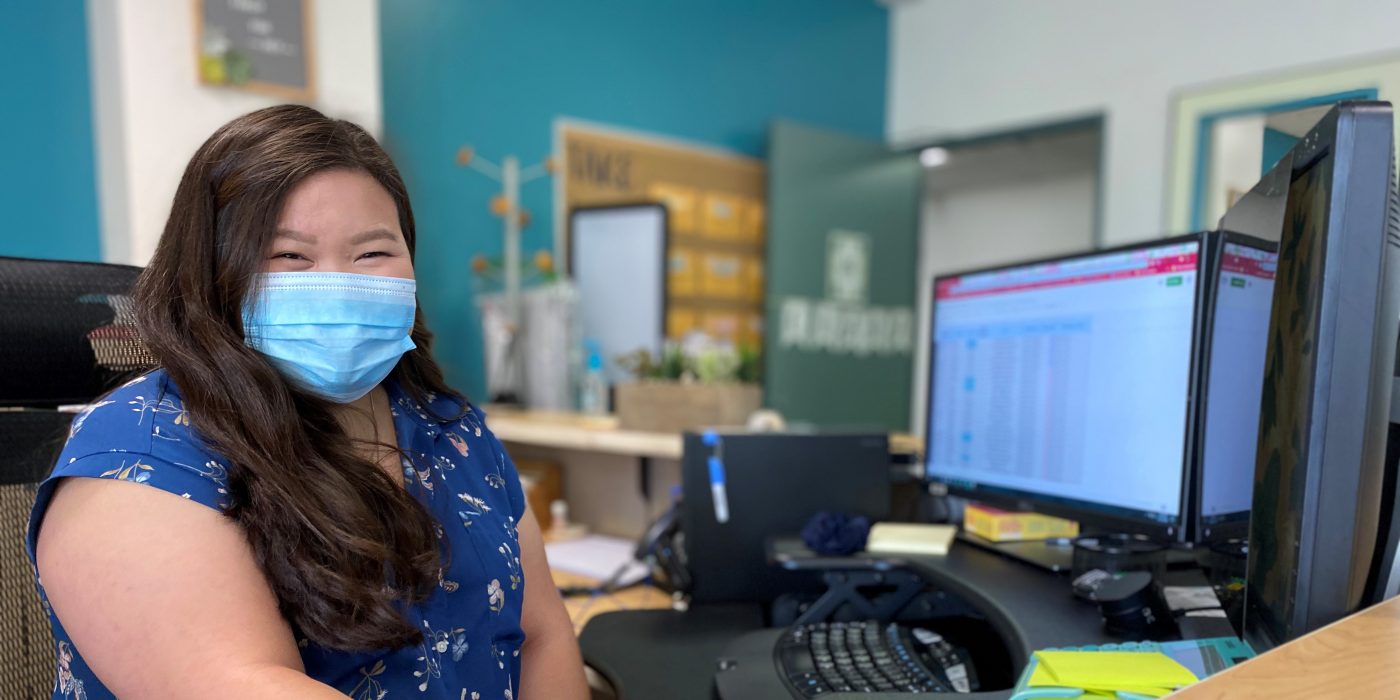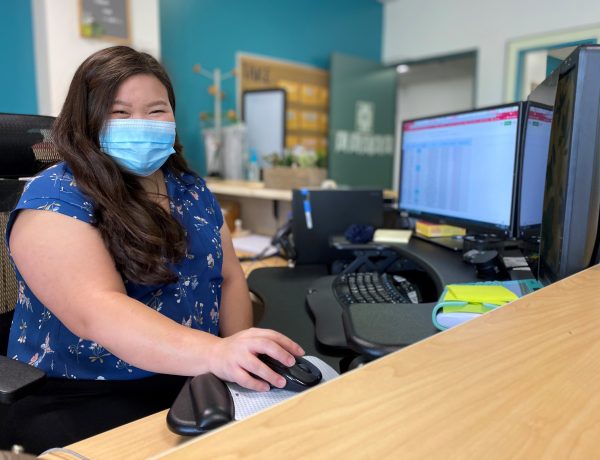

Being There: How the Foundation Rallied Together for PCC’s Most Vulnerable Students
Affording a college education is not as simple as taking out a loan. It’s about balancing budgets, carving out time, covering bills, and paying for classes and books and supplies.
It’s also about being able to live day-to-day – having food, transportation, childcare, and a place to rest your head at night.
Unfortunately, when there is an international crisis that temporarily closes businesses and leads to job loss, no amount of financial finesse and planning can safeguard against the unexpected loss of income.
With the novel coronavirus disrupting businesses and prompting a rise in layoffs and furloughs, many PCC students suddenly found themselves struggling to make ends meet and continue with their education.
 “I had just received the Retirees Association Scholarship when the pandemic hit,” said PCC student Dixie Bailon. “It was a real honor getting the award, but when everything started happening, the scholarship suddenly wasn’t able to cover my costs of living and school. I have a one-and-a-half-year-old, an unstable household, and no car. I knew it was going to get bad for me.”
“I had just received the Retirees Association Scholarship when the pandemic hit,” said PCC student Dixie Bailon. “It was a real honor getting the award, but when everything started happening, the scholarship suddenly wasn’t able to cover my costs of living and school. I have a one-and-a-half-year-old, an unstable household, and no car. I knew it was going to get bad for me.”
In response to the pandemic, the PCC Foundation set out to help the College’s most at-risk students—students like Dixie.
“There are always students who are at risk of not graduating or not continuing with their education because of financial hardship,” said Greg Sun, member of the Foundation’s Board of Directors. “So the Foundation had been developing a program to assist those students with cash grants. It was estimated that it would take at least twelve months to put it together. We got it done in six.”
The Sponsorship Program, which was designed to assist with essential needs of at-risk students to enable their course completion and graduation, was originally set to launch in Fall 2020. But when the pandemic hit, many students found themselves in dire and unexpected financial straits.
The Foundation knew it had to act fast.
“Many of our students were laid off from their jobs,” said Dolores Ybarra, the Foundation’s Development Manager. “They didn’t know what income was going to look like for them. I mean, the whole world was sort of in turmoil. Our students really felt it, and our goal was to get them in a place where we could support their emergency needs.”
“We jump-started the Sponsorship Program by meeting with a number of people involved in Student Services and asking them what the students were experiencing and how we could best meet their needs,” explained Greg. “We obviously knew we were not going to be a complete source of financial assistance for every student, but we knew we could provide help where students needed it most.”
Things like laptops, internet, housing, and food and security were paramount. And so the Foundation began to focus its fundraising efforts on the community, knowing its donors would be looking for a way to help.
“We sent out a call for support,” said Dolores. “It was very direct and to the point. We told our donors that we were anticipating a diversity of needs for our students and would they consider making a gift. The outreach was very successful, and we followed it up with a series of updates and additional requests for support.”
Then in May, the Foundation applied for a grant at the Pasadena Community Foundation for $15,000, which went toward direct emergency student support and the eventual purchase of gift cards for students.
Prior to the pandemic, the Lancer Pantry combatted food insecurity from the campus, averaging about 1,300 visits per month. When the Pantry closed its doors in March, the College and the Foundation needed to come up with another method for delivering food to students.
“At first, we were having bags of food prepared in advance,” Dolores said. “It was a no-contact program where students would drive through to receive their bags. And when the campus temporarily closed the Lancer Pantry, we decided to issue gift cards so students could buy groceries and other basic necessities,” Dolores said.
It was Clara Lee, the Foundation’s clerk, who was put in charge of purchasing the gift cards.
“I was trying to think of stores that were most widely accessible to students,” Clara said, “and I thought, well, everyone goes to Target, or at least most people have access to one. So I got in touch with Target’s corporate offices and started buying gifts cards in bulk.”
This arrangement allowed students to get access to food and supplies on the day they made a request.
“I was informed that there was going to be some emergency funding available and that I should apply because my scholarship was no longer going to be enough,” Dixie said. “When the Foundation told me this, I was like, yes, please, I need all the help I can get!”
Dixie received $600 in emergency funding, which covered the cost of her and her child’s food.
“My kid and I try to eat healthy,” she explained. “But that’s not always the cheapest option, especially during the pandemic. I’m a cancer survivor, so my immunity isn’t top-notch. I have to take care of my health. And with a kid, it’s even more reason to be mentally, emotionally, and physically present. Food and nutrition are so important, and thanks to the Foundation, my son and I can eat well.”
In all, the Foundation provided more than $120,000 in emergency funding and has served more than 1,400 students during the pandemic.
“I am so proud of what our team and our community has done,” said Dolores. “The willingness to work together and rush to meet the needs of our students as quickly as possible, all while working remotely, was incredible. That’s the mission of the Foundation: assessing the needs of our students, supporting them holistically, and letting them know we’re here for them. That’s what we’re about.”